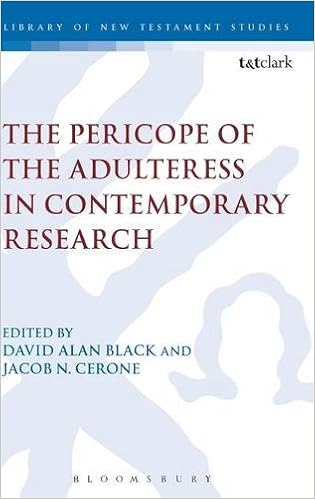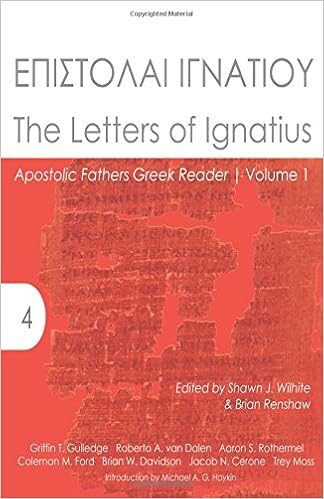 Are there significant differences between the first edition of the New International Dictionary of New Testament Theology edited by Colin Brown and the revision by Moisés Silva? In doing some preliminary study of δεσπότης, I’ve pulled up various theological dictionaries and decided to see if there are any significant developments or changes within the newest revision of NIDNT.
Are there significant differences between the first edition of the New International Dictionary of New Testament Theology edited by Colin Brown and the revision by Moisés Silva? In doing some preliminary study of δεσπότης, I’ve pulled up various theological dictionaries and decided to see if there are any significant developments or changes within the newest revision of NIDNT.
For δεσπότης, at least, the answer is a resounding yes. Significant changes have taken place. I will only point out one here:
Having defined the word, Bietenhard—the author of the original entry—turns to look at its usage within the Greek Old Testament. He writes:
OT despotēs occurs only about 60 times in the LXX. Where there is a Heb. original it mostly translates ’āḏôn, lord, master. The word is used less than kyrios. This was no doubt because despotēs expresses the arbitrary, unlimited exercise of power without any real conditions, which must have been foreign to Israel’s concept of God. For Israel had experienced the Lordship of God in his gracious, saving actions in history. . . . The retreat of the term despotēs in the face of kyrios is theologically significant.
This is a rather sweeping statement that has significant implications for theology or, rather, is highly influenced by a specific theological orientation. Bientenhard is not the only one that draws these conclusions about the word’s usage within the Greek OT, however. As a matter of fact, he has most likely gotten the idea from TDNT and has simply reworked it for this volume (see Rengstorf’s comments in TDNT 2:44–49).
Does the newest edition of NIDNT maintain this analysis? No. Instead, Silva completely revises this material, refutes it, and provides an alternative suggestion for the paucity of usage in the Greek OT:
The infreq. of δεσπότης in the canonical books may reflect a concern that this term expresses an arbitrary, unrestrained exercise of power, something foreign to Israel’s concept of God (cf. K. H. Rengstorf in TDNT 2:47). This consideration, however, fails to explain why the term is seldom used of human beings as well. Moreover, the fact that it is used at all with ref. to God (incl. many instances in the Apoc., e.g., 2 Macc 5:20; 3 Macc 2:2; Wis 6:7; Sir 23:1) suggests that Gk.-speaking Jews did not regard δεσπότης as a negative term. Because the word is used with greater relative freq. in the Apoc., Rengstorf states that “the term is not really at home in the biblical world and only comes to be more closely linked with it as the years pass” (TDNT 2:46), but it must be remembered that many of the OT books were transl. from Heb. into Gk. in the 2nd and 1st centuries BC, i.e., about the same time as the books of the Apoc. were produced. Perhaps a better explanation is the simple fact that the Heb. language does not have a close equivalent to δεσπότης. Once the obvious correspondence between ָאדוֹן and κύριος had been established, no other Heb. term would have motivated the translators to use δεσπότης.
In view of contemporaneous or even later Hellenistic Jewish writings, Silva’s corrective here is of great importance. One particular author I have recently read has taken up the idea from Rengstorf that the use of δεσπότης for God is a more remote, abstract concept that, while present within the biblical texts is not really at home in them. As we read later Hellenized, Jewish authors, we see a more Hellenistic picture of God, one that depicts him as an abstract power that is not intimately involved within human affairs or the course of history. While it is not my intent to challenge the idea of Hellenization or even the idea that the word became more acceptable as a title for the Jewish (and Christian) God, it is important to not base that idea on faulty assumptions.
As a closing remark, I remind those working in the original languages not to be overly reliant on secondary literature. Even Silva’s revision must be tested and evaluated in light of the primary source evidence, to which I now return.









Reblogged this on Talmidimblogging.
That last point is worth emphasizing – particularly when it is now sooooo much easier to simply test out this kind of hypothesis with bible software (even if it’s still a little bit more difficult to query sources for extra-biblical sources). The data crunching aspect of that kind of lexical work would have been so much more onerous even 30 years ago.
I couldn’t believe more. Last night in our Oberseminar, we discussed John Lee’s work on NT Lexicography and emphasized over and over the importance of investigating the primary texts, including the papyri and epigraphical information. Not only that, we must have a close eye on the secondary literature (as he calls them, the opinions). The task is by no means an easy one, but it is a necessary one!